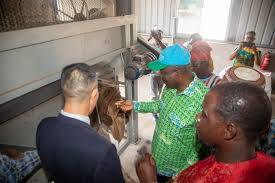Traditional Leadership and Economic Empowerment: Chiefs Driving Community Transformation Through Sustainable Development
In many African countries, traditional leaders, such as chiefs, have long played a central role in their communities, guiding their people through cultural, spiritual, and economic matters. While their primary role has often been associated with maintaining cultural heritage, there is a growing trend of chiefs taking on an active role in economic development and poverty reduction. These leaders are increasingly recognized for their ability to mobilize their communities, leverage local resources, and advocate for policies that promote sustainable development.
Chiefs have been instrumental in driving local development projects aimed at improving the livelihoods of their people. In many rural areas where access to government services and infrastructure is limited, traditional leaders step in to bridge the gap, ensuring that community members benefit from social and economic initiatives. These projects often focus on improving education, healthcare, and access to clean water, but economic empowerment is a primary concern. Chiefs have initiated programs that provide training in skills, agriculture, and small-scale businesses, fostering entrepreneurship among young people and women.
One key area where chiefs have had a significant impact is in promoting sustainable agriculture. Chiefs work with local farmers to introduce climate-resilient farming techniques, such as crop diversification and water conservation methods. By encouraging sustainable agricultural practices, chiefs not only boost food security but also create income-generating opportunities for their communities. These initiatives contribute to poverty reduction by increasing productivity and improving market access for local produce.
Additionally, chiefs have been at the forefront of advocating for economic policies that benefit their communities. They have often worked in collaboration with government agencies, non-governmental organizations, and private sector players to bring resources and investments into their areas. Whether through facilitating access to microfinance or negotiating favorable terms for local enterprises, traditional leaders help shape economic environments that encourage growth and self-sufficiency.
In the face of globalization and modernization, traditional leadership remains a powerful force for social and economic change in many African communities. Chiefs continue to be trusted figures who can mobilize resources, unite people, and lead initiatives that reduce poverty and promote sustainable development. By blending traditional authority with modern economic strategies, chiefs are proving to be vital agents of transformation in their communities.



No comments yet
Be the first to share your thoughts!